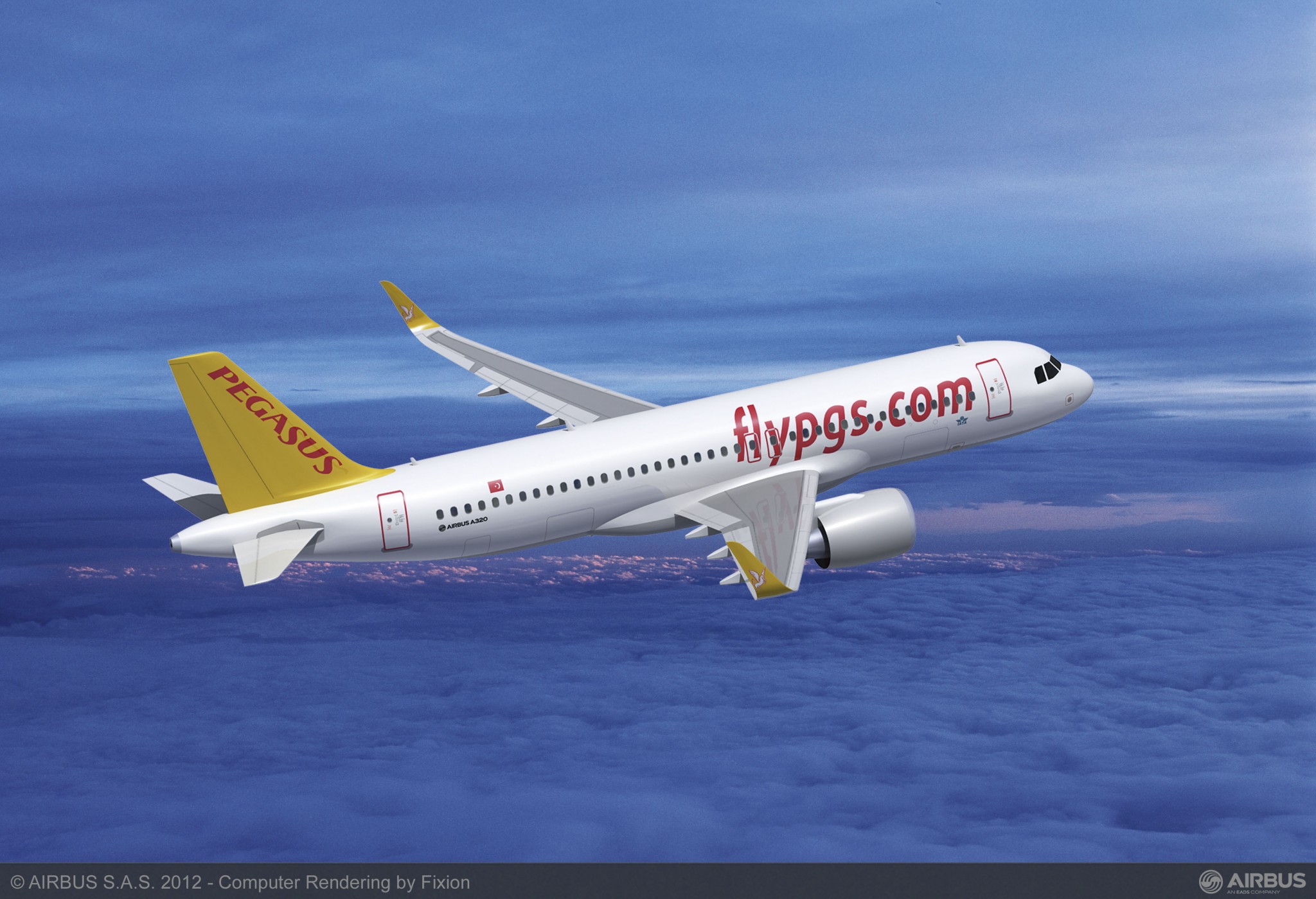Pegasus Airlines has evaluated its performance for 2016 whilst disclosing its targets for the future. Despite all the developments that have put pressure on the aviation sector in 2016, Pegasus said that it had succeeded in increasing its guest numbers by 8.1% to 24.14 million, and its turnover by 6.2% to TRY 3.7 billion. Pegasus CEO Mehmet T. Nane stated that the airline expected a cautious recovery in the aviation sector for 2017, but real growth would be experienced from 2018 onward.
Nane said “2016 was rather a difficult year for the sector. There were many challenges affecting air traffic during the year, the most significant of which were the events of July 15. Despite this, we have worked tirelessly to increase our guest numbers and our revenue, and at the same time have kept our expenses under control with clever and sometimes ingenious projects. By the end of the year, we had provided our services to a total of 24.14 million guests comprising of 15.29 million on international routes and 8.85 million on routes in Turkey. While the market as a whole grew 5.8% on routes in Turkey, we at Pegasus successfully grew our guest numbers by 10.7% with our main hub being at Istanbul's Sabiha Gokcen Airport. Similarly, while the international flight market shrank by 15.5% we recorded growth of 3.9%.”
Pegasus has increased its fleet usage to ensure each of its 82 aircraft is utilised on average 12 hours a day.
Nane stated that they had taken some effective management decisions during the challenging year of 2016. “Our priority was reducing costs. We have instigated some ingenious projects that really give us the right to be called a low-cost airline. We have inaugurated strict optimisation of all our cost items. Through strategic steps such as bringing forward our Airbus orders, with their higher fuel efficiency, and rescheduling our Boeing deliveries, we have reformed both our cash flow and our fuel cost management. We have increased efficiency and savings in our flight operations by introducing the Electronic Flight Bag/EFB throughout the fleet. By ending the use of paper in the cockpit we have achieved our goals with regard to reducing in-flight weight and increasing operational efficiency.”
In 2016 and the first quarter of 2017, Pegasus rented out four of Boeing B737-800 aircraft to Pakistan Airlines (PIA) and two to Flynas on a wet lease. On March 20, the airline also sold seven Boeing 737-800NG aircraft to Air Lease Corporation for a total of $178.7 million. Pegasus has accelerated its portfolio replacement with A320neo to ensure optimisation of fuel use.
Nane said the airline aims to increase the number of guests carried by Pegasus in 2017 by between 5 and 7% percent. “We have declared this year as one in which we will regain our figures from before the 2016 crisis. We have great faith in the Turkish economy and its tourism potential. That is why, though we see 2017 as a period of renewal, we expect the real growth to occur in 2018 and beyond.”
Emphasising that with its stakes in IzAir and AirManas, Pegasus is a regional player and he highlighted the part these affiliates have to play in Pegasus's expansion plans.
Pegasus recently reached agreement with Air Berlin to purchase its 29.51% stake in IzAir for €1.2 million. After this purchase has been approved by the Ministry of Transport and the competition board, Pegasus' stake in IzAir will rise to 98.63.

